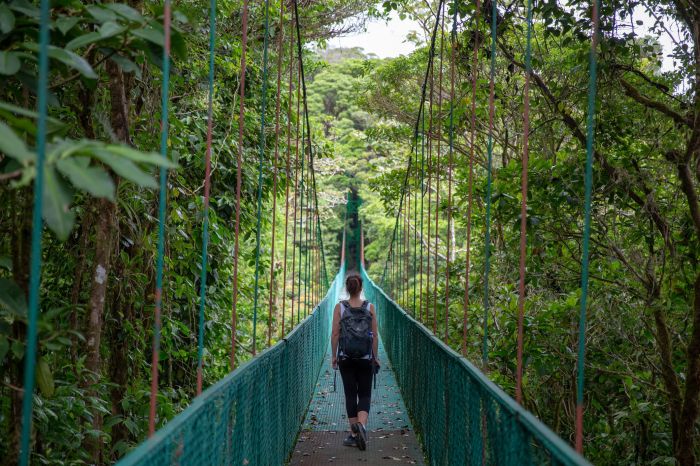Sustainable travel destinations offer a unique opportunity to explore the world while minimizing our impact on the environment and respecting local cultures. These destinations are designed to protect natural resources, support local economies, and promote cultural understanding. From lush rainforests to ancient cities, there are countless sustainable travel destinations waiting to be discovered.
As travelers, we have a responsibility to ensure that our adventures do not come at the expense of the environment or local communities. By choosing sustainable travel destinations, we can make a positive impact while creating lasting memories.
Understanding Sustainable Travel Destinations

Sustainable travel is a responsible form of tourism that aims to minimize negative impacts on the environment and local communities while maximizing positive benefits.
When planning a sustainable travel destination, it’s essential to pack wisely. Check out our beach holiday packing list for tips on packing light and eco-friendly. By choosing reusable items, avoiding single-use plastics, and supporting local businesses, you can minimize your environmental impact while enjoying your beach getaway.
Sustainable travel practices extend beyond packing; they encompass responsible tourism and respecting local cultures.
It involves traveling to destinations that prioritize conservation, cultural preservation, and economic development that benefits local residents. Examples of sustainable travel destinations include:
Costa Rica
- Known for its lush rainforests, national parks, and ecotourism initiatives.
- Has implemented strict environmental regulations and promotes responsible tourism practices.
Iceland
- Renowned for its natural wonders, including glaciers, geysers, and waterfalls.
- Relies heavily on renewable energy sources and promotes sustainable tourism through responsible whale watching and hiking practices.
Bhutan
- A small Himalayan kingdom that values cultural preservation and environmental protection.
- Imposes a high value-added tax on tourism to encourage responsible travel and protect its unique culture and environment.
Benefits of Sustainable Travel

Sustainable travel practices offer a plethora of benefits that extend beyond environmental preservation. They also encompass economic and social advantages, fostering a harmonious balance between tourism development and the well-being of local communities.
Environmental Benefits
Sustainable travel prioritizes minimizing the ecological footprint of tourism activities. By promoting responsible resource management, reducing carbon emissions, and conserving biodiversity, it safeguards the natural integrity of destinations. This not only protects ecosystems for future generations but also enhances the overall visitor experience.
Economic Benefits
Sustainable tourism stimulates local economies by creating jobs, supporting small businesses, and promoting cultural heritage. It encourages the use of local products and services, fostering economic resilience within communities. Additionally, by preserving natural resources, sustainable tourism ensures the long-term viability of tourism as an economic driver.
Social Benefits
Sustainable travel fosters cross-cultural understanding and promotes respect for local traditions. It empowers local communities by involving them in decision-making processes and ensuring they benefit from tourism. Moreover, it contributes to social equity by providing employment opportunities and improving living standards for marginalized populations.
Challenges in Promoting Sustainable Travel

Despite the growing awareness and demand for sustainable travel, there are challenges in promoting and encouraging responsible tourism. These challenges stem from various factors, including:
Overcoming these challenges requires a collaborative effort from stakeholders, including governments, travel companies, and travelers themselves. By addressing these challenges and implementing effective strategies, we can foster a more sustainable and responsible tourism industry.
When selecting sustainable travel destinations, consider their environmental impact. Many destinations offer scuba diving locations that prioritize marine conservation. By choosing destinations that protect marine ecosystems, you can contribute to the preservation of underwater biodiversity and ensure the longevity of these breathtaking experiences for future generations.
Lack of Awareness and Understanding
- Many travelers are unaware of the impact of their travel choices on the environment and local communities.
- There is a need to educate travelers about sustainable practices and the benefits of responsible tourism.
Economic Barriers
- Sustainable travel options can sometimes be more expensive than traditional tourism.
- Travelers may need to be incentivized to choose sustainable options.
Lack of Accessibility, Sustainable travel destinations
- Sustainable travel options may not be readily available or accessible in all destinations.
- Efforts are needed to improve the accessibility and availability of sustainable tourism options.
Cultural Barriers
- Cultural norms and practices may influence travel behavior and attitudes towards sustainability.
- It is important to engage with local communities and respect cultural differences while promoting sustainable practices.
Greenwashing
- Some travel companies may engage in greenwashing, making false or misleading claims about their sustainability practices.
- Travelers need to be able to identify and avoid greenwashing to make informed choices.
Best Practices for Sustainable Travel

Sustainable travel involves minimizing environmental impact and respecting local cultures. Travelers can adopt several best practices to ensure their travels are sustainable.
Minimizing Environmental Impact
- Choose eco-friendly transportation: Opt for public transport, walking, or cycling instead of driving. Consider trains or buses over flights when possible.
- Pack light: Reduce baggage weight to minimize fuel consumption during transportation.
- Conserve energy: Switch off lights and appliances when not in use, and unplug electronics to save electricity.
- Conserve water: Take shorter showers, use water-saving devices, and avoid unnecessary water consumption.
- Reduce waste: Bring reusable items like water bottles, shopping bags, and cutlery to minimize single-use plastics.
- Support local businesses: Patronize businesses that prioritize sustainability, such as those using renewable energy or promoting local products.
Respecting Local Cultures and Traditions
Cultural sensitivity is crucial for sustainable travel. Travelers should:
- Learn about local customs: Research the destination’s culture and traditions to avoid失礼失礼な振る舞い.
- Dress appropriately: Respect local dress codes and avoid revealing clothing in conservative areas.
- Be mindful of noise levels: Avoid loud conversations or music that may disturb locals.
- Ask permission: Seek consent before taking photos of people or sacred sites.
- Support local initiatives: Participate in cultural activities, visit local markets, and engage with the community to foster understanding and appreciation.
Case Studies of Sustainable Travel Destinations

Sustainable travel destinations are gaining popularity as travelers become more aware of the environmental and social impacts of their travels. These destinations implement strategies and initiatives to minimize their ecological footprint and promote local economic development while preserving cultural heritage and traditions.
Exploring sustainable travel destinations is a great way to minimize your environmental impact while experiencing new cultures. To help plan your budget, check out our travel budget calculator. It’s a convenient tool that will help you estimate the costs associated with your trip, ensuring you have a memorable and financially responsible adventure.
Here are some successful examples of sustainable travel destinations:
Costa Rica
- Costa Rica has been a pioneer in sustainable tourism since the 1990s.
- The country has protected over 25% of its land as national parks and reserves.
- Costa Rica is known for its ecotourism, which allows visitors to experience the country’s natural beauty while supporting local communities.
Iceland
- Iceland is powered by 100% renewable energy.
- The country has a strong commitment to environmental protection, with strict regulations on pollution and waste management.
- Iceland offers a variety of sustainable tourism activities, such as whale watching, hiking, and glacier trekking.
Bhutan
- Bhutan has a unique Gross National Happiness index, which measures the well-being of its citizens.
- The country has a strong focus on sustainable development, with a commitment to preserving its natural environment and cultural heritage.
- Bhutan offers a variety of sustainable tourism experiences, such as cultural tours, trekking, and meditation retreats.
Future of Sustainable Travel

The future of sustainable travel looks promising, with emerging trends and technological advancements shaping the industry towards greater responsibility and environmental consciousness.
Emerging Trends in Sustainable Travel
- Increased Demand for Eco-Friendly Accommodations: Travelers are seeking accommodations that prioritize sustainability, such as eco-lodges, green hotels, and vacation rentals with eco-friendly practices.
- Growth of Regenerative Tourism: This approach focuses on not only minimizing negative impacts but also actively restoring and regenerating destinations, supporting local communities and ecosystems.
- Emphasis on Local Experiences: Travelers are seeking authentic experiences that connect them with local cultures, traditions, and businesses, promoting cultural preservation and economic empowerment.
- Increased Awareness of Carbon Footprint: Travelers are becoming more aware of their carbon footprint and seeking ways to reduce it through responsible travel choices, such as choosing low-emission transportation options.
- Rise of Sustainable Travel Certifications: Certifications like Green Globe, LEED, and EarthCheck provide travelers with assurance that accommodations and destinations meet specific sustainability standards.
Role of Technology in Promoting Responsible Tourism
- Travel Planning Apps: Apps like TripIt and Hopper offer features that help travelers make sustainable choices, such as calculating carbon emissions and suggesting eco-friendly transportation options.
- Virtual Reality and Augmented Reality: These technologies can provide immersive experiences of destinations, reducing the need for physical travel and promoting responsible tourism.
- Blockchain Technology: Blockchain can enhance transparency and accountability in the tourism industry, ensuring that sustainability commitments are met and empowering travelers to make informed choices.
- Data Analytics: Data analytics can help destinations track their sustainability performance, identify areas for improvement, and adapt to evolving trends in sustainable travel.
- Online Marketplaces for Sustainable Travel: Platforms like Sustainable Travel International and BookDifferent connect travelers with eco-friendly tour operators, accommodations, and experiences.
Final Wrap-Up

Sustainable travel is not just a trend; it is a necessity for the future of our planet and its people. By embracing sustainable practices, we can protect the beauty of our world and ensure that future generations can experience its wonders.
Expert Answers
What are the benefits of sustainable travel?
Sustainable travel offers numerous benefits, including environmental protection, economic development, and cultural preservation.
How can I find sustainable travel destinations?
There are many resources available to help you find sustainable travel destinations, including online databases, travel agencies, and guidebooks.
What are some tips for sustainable travel?
When traveling sustainably, it is important to minimize your environmental impact by choosing eco-friendly transportation, reducing your energy consumption, and respecting local cultures.